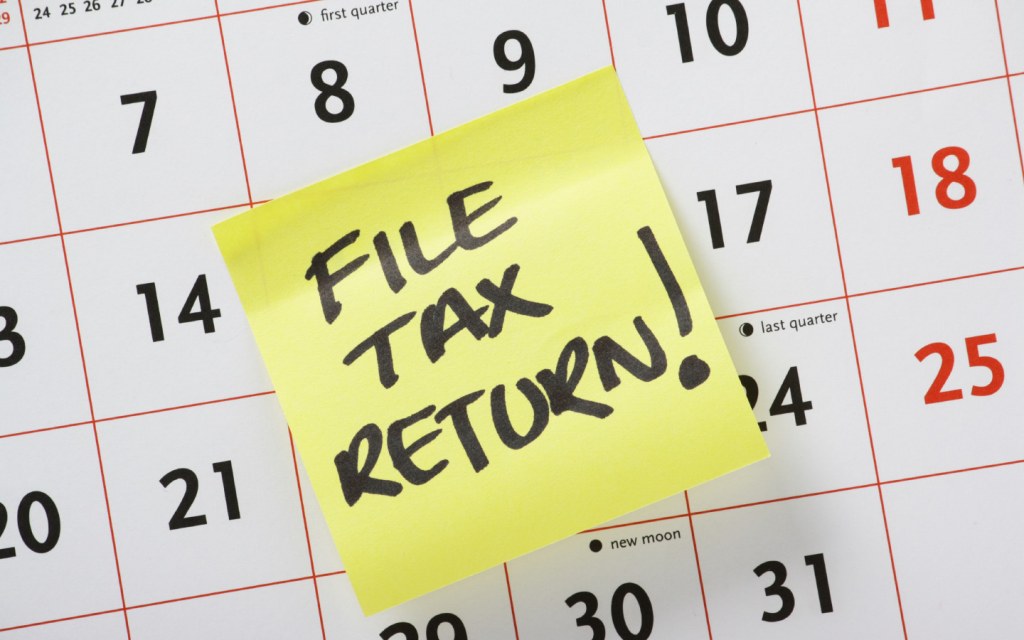Home » Laws & Taxes » Here’s What Overseas Pakistanis Need to Know About Becoming Tax Filers
If you are a citizen of Pakistan residing in a foreign country, you might have some questions regarding filing your tax returns. Or maybe you want to know if you can become a tax filer, to begin with. While the prospect of dealing with taxes may seem overwhelming to some, the process through which overseas Pakistanis become tax filers is quite simple.
Before we discuss how Pakistani expats can file tax returns from the comfort of their homes, let’s address a few common misconceptions and questions you might have.
Do Overseas Pakistanis Have to File Taxes?

The simple answer is yes, overseas Pakistanis have to file taxes. However, they are only taxed on their Pakistan-sourced income.
Taxation in Pakistan, much like in other countries, is based on an individual’s residential status instead of their nationality. Previously, a person was considered a tax resident if they stay in the country for a period of 183 days (or longer) during a tax year, which starts from July 1 and ends on June 30. However, the period was reduced to four months after the Finance Act, 2019.
That means, for the fiscal year 2019-20, an individual has to stay in a foreign country for at least eight months or so in order to claim ‘tax-free status.’
It is also important to understand that residents of Pakistan are taxed on all of their income – be it earned domestically or in another country. Meanwhile, when it comes to filing tax returns for overseas Pakistani, they are only required to file an income tax return on the income sourced from Pakistan, if any.
Non-resident Pakistanis are not obliged to file a Wealth Statement either.
Overseas Pakistanis can become tax filers if their Pakistan-sourced income falls below the legal tax bracket or doesn’t exist at all. If they have a valid CNIC, they can still file nil tax returns to get the benefits of a filer.
What Is Considered Taxable Income in Pakistan?

Pakistan-sourced income basically means income or salary earned in Pakistan, which is taxable regardless of where it’s being received. This means, even if Pakistani expats residing in a foreign country are getting remuneration from an employer in Pakistan, their income tax will most likely be deducted from their salary at source.
Another important thing to mention is here that just because your income tax is being deducted from your salary does not mean you are automatically a tax filer. You need to be added to the Federal Board of Revenue’s Active Taxpayers List in order to be recognized as a filer in Pakistan.
Furthermore, if an expat has movable or immovable assets in Pakistan such as a vehicle or a house purchased solely from foreign income, they need to prove that the funds were remitted from outside of the country. They also need to establish that the transaction was carried out through proper channels allowed by State Bank of Pakistan. In 2018, the Federal Board of Revenue decided to waive off the withholding tax on the withdrawal of remittances (funds sent home by non-resident Pakistanis.)
As per the Pakistan tax law, FBR and concerned authorities are allowed to open an inquiry into any taxpayer’s assets and ask them to explain the source, if needed.
How Can Overseas Pakistanis File Tax Returns in Pakistan?

In order to become a tax filer in Pakistan, an overseas Pakistani first needs to obtain an NTN (National Tax Number) by registering on the Federal Board of Revenue’s online portal.
However, before we talk about the process of tax filing for overseas Pakistanis, you need to check your taxpayer status.
How to Check Your Taxpayer Status and NTN
There are two quick ways to check if you are already listed as a filer.
- Typing ATL [space] CNIC number and sending it to 9966. Make sure you don’t add any dashes between the numbers. You’ll shortly receive a message informing you of your taxpayer status. However, you’ll require a Pakistani sim for the purpose.
- Visit the official FBR website and hover over ‘Search Taxpayers’ in the navigation panel. From the dropdown menu, select ‘Active Taxpayers (IT)’. It’ll lead you to a new tab, where you’ll type your CNIC number and verification code. Click verify and you will immediately know if your name is on the ATL.
If you are listed as a taxpayer but don’t know your NTN, click on the ‘Online NTN/STRN Inquiry’ section and use your CNIC number to obtain the number.
Meanwhile, individuals who have an NTN but don’t have the credentials to log into IRIS, the online portal for filing an income tax return, can obtain their username and password by clicking on ‘E-Enrolment for Registered Person.’
Registering for NTN
FBR registration for overseas Pakistani is pretty straightforward.
As for the overseas Pakistanis who have never filed their taxes before, they need to first register on FBR’s website first by clicking on ‘Registration for Unregistered Person’ link on the bottom left of the window. Then follow the procedure and fill in the required details to log into the IRIS system.
You will also have to verify your phone number and email address via two separate codes sent your smartphone and email. Verify these codes as quickly as possible as they are useless after a certain time.
Complete ‘Registration Form’ present in the draft folder and submit to receive your NTN.
For more information on how to become a tax filer in Pakistan, please check out our comprehensive guide on the topic.
Filing Tax Return for Overseas Pakistanis
As for filing of income tax returns by non-resident Pakistanis, log into IRIS and click on ‘Declaration’ menu on top. You can then follow the procedure explained in our step-by-step guide on filing tax returns, just make sure to mention your income from foreign sources in the ‘Other Sources’ section on the online portal.
Also, depending on how many months you’ve spent in Pakistan during the fiscal year, select your status as ‘resident’ or ‘non-resident’ accordingly in the ‘Attributes’ section and enter relevant information in input fields.
Why Should Overseas Pakistanis Become Tax Filers in Pakistan?

There are several benefits of being a filer in Pakistan. For instance, if overseas Pakistanis become tax filers, they can avail the privilege of paying lower taxes on financial transactions. Becoming a tax filer is extremely beneficial for non-resident Pakistanis who want to invest in the real estate sector, stock exchange, mutual funds, saving schemes and even prize bonds.
Previously, non-filer overseas Pakistanis were barred from buying property in the country. Although the current government has eased that restriction, a non-filer still cannot purchase a property exceeding PKR 50 lakh. Meanwhile, there is no certain limit set for filers.
In addition to that, compared to non-filers, active taxpayers are only required to pay half of the withholding tax. If overseas Pakistanis become tax filers, they have to pay up to 50% less tax on the purchase of vehicles.
Furthermore, tax filers in Pakistan only pay 15% tax on winning prize money through prize bond, whereas non-filers pay 25% tax.
To learn more about federal income tax, stay tuned to Zameen Blog – the best real estate blog in Pakistan. If you have any questions or suggestions, reach out to us at blog@zameen.com.



